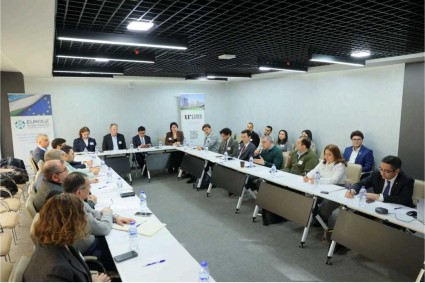The Senate at today’s plenary session passed the amendments to the Rent Law and Leasing Law, the press service of the Senate said earlier.
The first law does not regulate the definition of a lease agreement with a further purchase and related relations. While, there is no rule that ensures the protection of the rights of tenants when they acquire a leased object in their ownership. In particular, after the payments were made, the tenant wanted to register the object as his property, but later it turned out that this property was pledged or foreclosed.
Erkin Gadoev, Chairman of the Committee on Budget and Economic Reforms, citing data from the Supreme Court, said that in 2020, 10 persons were convicted in criminal cases on fraud in renting or leasing cars, and in 2021 this figure doubled and reached 22.
The damage caused to individuals as a result of these crimes topped 8.2 billion soums in 2020, and in 2021 it increased by almost 9 times - up to 69.3 billion soums. The number of victims of similar crimes increased 16 times - up to 16.8 thousand people.
The amendments establish that under a lease agreement with the condition of subsequent redemption, the lessor, when leasing his property, undertakes to transfer it to the tenant's ownership after he fulfills the terms of the agreement.
From the moment such an agreement is entered into, the property is deemed pledged in favor of the tenant, therefore it is prohibited to transfer it as a pledge to other persons or dispose of it in any other way.
The Leasing Law states that the lessor has no right to use the object of leasing as collateral without the prior consent of the lessee. But there is no provision that the lessor is not entitled to dispose of the object of leasing without the consent of the lessee. Therefore, there are cases when the object of leasing is sent for collection to secure other obligations of the lessor.
In this regard, a provision is being introduced that the lessor shall not be entitled to dispose of the object of leasing in any other way without the consent of the lessee.
A provision is also introduced according to which, unless otherwise provided by the leasing agreement, from the moment the leasing agreement is concluded, the object of the agreement is considered pledged by the lessee to ensure the fulfillment of the obligations of the lessor.
While, it indicates the possibility of the lessee acquiring the object of leasing in the property, having fully paid its cost before foreclosure.
Foreclosure on the object of leasing (its withdrawal) for the obligations of the lessor or the lessee to third parties is carried out within the limits of the lease payments paid and received by them. At the same time, before the withdrawal of the object, the state executor must offer to buy the object by means of a one-time payment of the balance of the lease payments due under the leasing agreement, minus the income of the lessor for the remaining period. Then the withdrawal of the object of leasing stops.
Senate Speaker Tanzila Narbayeva said that in practice there are many cases when citizens are deceived and suffer huge losses in matters of rent and leasing.
“When entering into lease, leasing relations, every citizen must be completely sure that his rights are firmly protected by law. This is exactly what the new norms in the law are devoted to,” she said.
According to her, there will be no desired results if the direct executors do not ensure the correct interpretation and application of the law. Therefore, all officials, especially in the regions, deputies of local councils should pay serious attention to raising the awareness of the population and officials about these innovations, the speaker of the Senate underscored.















